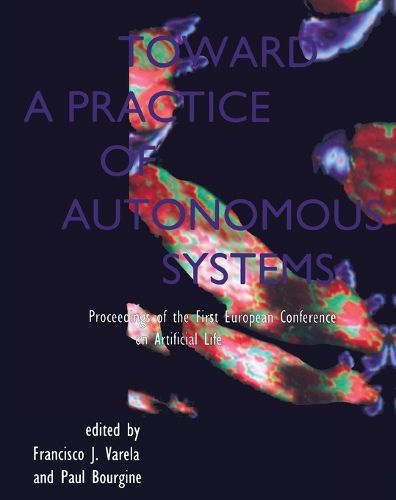Readings Newsletter
Become a Readings Member to make your shopping experience even easier.
Sign in or sign up for free!
You’re not far away from qualifying for FREE standard shipping within Australia
You’ve qualified for FREE standard shipping within Australia
The cart is loading…






Artificial life embodies a recent and important conceptual step in modern science: asserting that the core of intelligence and cognitive abilities is the same as the capacity for living. The recent surge of interest in artificial life has pushed a whole range of engineering traditions, such as control theory and robotics, beyond classical notions of goal and planning into biologically inspired notions of viability and adaptation, situatedness and operational closure. These proceedings serve two important functions: they address bottom-up theories of artificial intelligence and explore what can be learned from simple models such as insects about the cognitive processes and characteristic autonomy of living organisms, while also engaging researchers and philosophers in an examination of the epistemological basis of this new trend. Contributors include: H. Bersini, D. Parisi, R.A. Brooks, C.G. Langton, S. Kauffman, J.L. Denenbourg, P. Maes, J. Holland, T. Smithers, H. Swefel, H. Muhlenbein.
$9.00 standard shipping within Australia
FREE standard shipping within Australia for orders over $100.00
Express & International shipping calculated at checkout
Stock availability can be subject to change without notice. We recommend calling the shop or contacting our online team to check availability of low stock items. Please see our Shopping Online page for more details.
Artificial life embodies a recent and important conceptual step in modern science: asserting that the core of intelligence and cognitive abilities is the same as the capacity for living. The recent surge of interest in artificial life has pushed a whole range of engineering traditions, such as control theory and robotics, beyond classical notions of goal and planning into biologically inspired notions of viability and adaptation, situatedness and operational closure. These proceedings serve two important functions: they address bottom-up theories of artificial intelligence and explore what can be learned from simple models such as insects about the cognitive processes and characteristic autonomy of living organisms, while also engaging researchers and philosophers in an examination of the epistemological basis of this new trend. Contributors include: H. Bersini, D. Parisi, R.A. Brooks, C.G. Langton, S. Kauffman, J.L. Denenbourg, P. Maes, J. Holland, T. Smithers, H. Swefel, H. Muhlenbein.